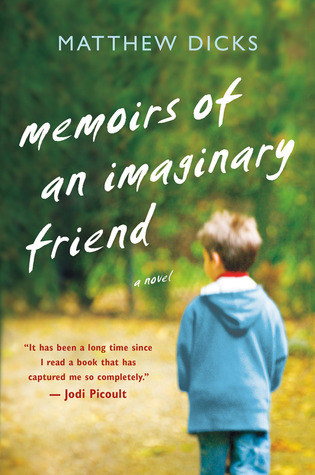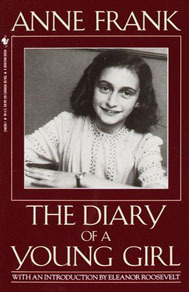
Any book that leaves me crying in the bathroom at work can't be all bad, right?
I'm not going to say I really enjoyed reading this book, because - like I said - it left me crying at points. I don't enjoy crying, don't like being made to feel all the feels, make the ugly cry face, etc. But I'm such a jaded old grump that most of the usual heartstring-tugging that authors use to get you to feel the feels doesn't usually work on me. I recognize it for what it is - a cheap ploy to sell books and get people to talk about how the book made them feel (and, thereby, sell more books). So when a writer is able to push past my defenses and make me feel true emotion, I have to give credit.
Max is a young boy on the autism spectrum (though I don't think they ever come right out and say it in the book); Budo is his imaginary friend. (And, really, as Budo puts it, probably Max's only friend.) Most imaginary friends last only as long as their boy or girl needs them to help navigate being a kid; because Max is "special" and needs Budo to get through the routine things that most kids have already mastered, Budo has lasted a lot longer than most imaginary friends.
Something very much out of Max's routine happens, and Budo is forced to decide between leaving things alone (in which case Max will continue to need him, and he'll continue to exist) and helping Max overcome the problem (which could mean that Max grows enough that he won't need Budo any more). The Very Important Lesson in this book is that doing what's right isn't always the same as doing what's easy, or doing what's fun.
Dicks does a really good job of not only showing what life is like for an autistic person, but also showing how hard autism is for that person's family, teachers, etc. to understand. Max's mom is torn between smothering him with affection, which makes him uncomfortable, and giving him the space he needs, and his father thinks everything will be alright if they just ignore it and if Max just tries a little harder to be "normal". My only quibble here is when Max is put into a situation where he is forced waaay out of his comfort zone and he's forced to break his "rules" (like crossing a street, going outside when it's dark, walking on the sidewalk, etc.). I don't know that an autistic child would have been able to make these decisions and "break the rules" as easily as the author has Max do it.
The other area where Dicks has really done well is in creating this whole concept of what being an imaginary person means. The story is told from Budo's point of view; while Max is the only real person who can see Budo, Budo introduces the reader to an entire menagerie of imaginary friends.
Because these imaginary friends are created entirely out of their real person's imaginations, they run the gamut from basic concepts like a smudge on a wall to a two-dimensional paper boy to a spoon with eyes to a fairy princess to Budo, who is like a regular boy in (almost) every detail. Dicks has created an entire list of "rules" about imaginary friends - things they can or can't do, based on how their real friends imagined them. For instance, Budo can't run very fast, because Max never imagined him needing to run fast, but he can walk through doors and windows, because Max was worried he'd be trapped in a room or closet (one of Max's biggest fears). Budo doesn't sleep, because Max imagined Budo watching over him while he slept. And of course, the biggest part of this is the idea that an imaginary friend only exists as long as their real person continues to think of them. Which (without giving away anything) is where the whole "crying in the bathroom at work" thing comes in.
I loved just about everything about this book, from character descriptions, to the final plot resolution, even (especially) the way Budo and Max and the other kids talked, with "washer machines" and "bonus poops".
One last note: I read this as part of our "Reading with Karen" effort to read all of my late sister's to-read list. I know Karen would have loved this book as much as I did, and she would have posted on here that it had her "bawl-bagging" at the end. (



